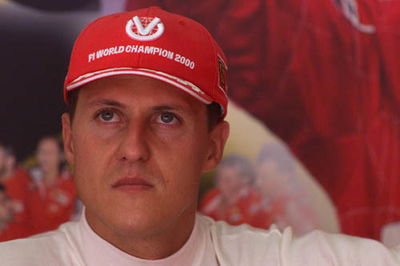New EU threat to British race industry.
A study into the size and importance of Britain's motorsport business may have concluded that it is bigger and better than ever, but all that may change if the European Union has its way.
According to Britain's Financial Times newspaper, the EU's proposed working time directive, which is designed to limit the number of hours worked by anyone in any industry, could lead to the motorsport business being irreparably damaged.
A study into the size and importance of Britain's motorsport business may have concluded that it is bigger and better than ever, but all that may change if the European Union has its way.
According to Britain's Financial Times newspaper, the EU's proposed working time directive, which is designed to limit the number of hours worked by anyone in any industry, could lead to the motorsport business being irreparably damaged.
The motorsport world is well-known for defying conventional working hours, as it must to respond to the needs and whims of its clients. Many in the industry claim that the new directive bears little relevance to the core businesses involved in getting cars on the track. The report, issued yesterday by the Motorsport Industry Association [MIA] and compiled by the Universities of Birmingham and Newcastle, Cranfield University School of Management and Henley Management College, explained that, should the companies involved decide to implement the new rules strictly, it could harm an industry which "works to very tight deadlines and with highly specialised labour which is very difficult to increase or substitute".
"What the hell do [the EU] expect us to do if someone gets an unexpected technology jump, or there's a bad run of crash-damaged chassis?" its quoted one company boss as saying, "Do they really think that we're going to say 'oh gosh, we'd love to catch up or be in the race, but we can't because those guys in Brussels say we mustn't work too many hours?"
While its mainstream motor industry may have withered and died, Britain still provides the vast majority of expertise behind both overseas firms and the bulk of the world's leading race equipment. Ferrari's F1 world championship in 2000 may have broken a stranglehold established by the likes of Williams and McLaren, but other mass manufacturers such as Reynard and Lola currently dominate in the American CART series, and the junior formulae are well-populated with British technology. Britain is thought to provide around three-quarters of the world's racing machinery, despite the involvement of companies such as Mercedes, Audi, Renault and the American giants Ford and GM, many of whom co-opt British companies to build bespoke chassis and engines.
The report points out that, despite the high levels of skill involved in the industry, the workforce is till made up largely of enthusiasts who work there because they want to work there. It estimates that nearly 2500 companies, employing around half a million people, combine to add around ?5billion to the British economy each year, with a further ?2billion contributed to export figures.
"Outside the world of motorsport, the size of this British industry and its leading position in the global arena is little known," commented Chris Aylett, CEO of the MIA, "This survey reveals, for the first time, its true economic value, with more export earnings than agriculture and steel combined. It employs 400,000 people nationwide and is right at the heart of the knowledge-driven economy that represents the real future for this country."











